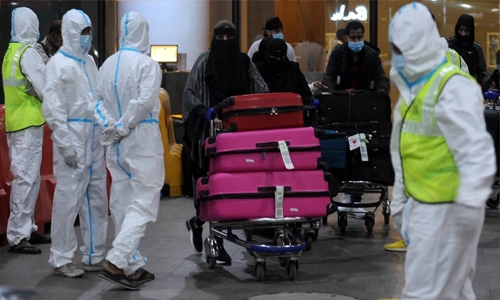Middle East nations tighten curbs due to new Covid-19 strain
IANS | Cairo
The Daily Tribune – www.newsofbahrain.com
Many countries across the Middle East have tightened restrictive measure in due to concerns over a new strain of the novel coronavirus.
The authorities have also banned the entry of travellers from these countries, except for Iraqi citizens who must be quarantined for 14 days until a PCR test proves they are not infected with the virus.
Moreover, land border crossings have been shut, except for emergencies and trade exchange, while malls, restaurants, and other public facilities will remain closed from 7 pm to 6 am, for two weeks.
Turkey has made it mandatory for all international travellers coming into the country by air, land and sea to present a negative Covid-19 test result starting from next week.
"The new measures were needed for arrivals from abroad due to the increase in the number of cases across the world and the acceleration of the pandemic," Turkish Health Minister Fahrettin Koca announced on Friday, adding that the new regulation will be effective until March 1, 2021.
Meanwhile, Palestine has imposed a full lockdown and curfew, which will remain effective until Sunday morning.
All shops and restaurants are closed, except for pharmacies and bakeries.
The Israeli government has decided to impose a full nationwide lockdown, the third of its kind since the onset of the pandemic, from 5 pm on Sunday.
The two-week lockdown will be extended for another two weeks unless the basic reproduction number, or the R number, falls below one, and the number of daily new cases falls below 1,000, according to an official statement.
The restrictions in the upcoming lockdown will include a ban on travelling more than 1,000 metres from home, with the exception of individual exercise, special cases and vaccination.
Staying in the residence of another person is also prohibited.
In addition, all businesses and recreational centres will be closed, except for restaurant deliveries, while the scope of activity for workplaces that do not receive the public will be reduced by 50 per cent.
Related Posts

